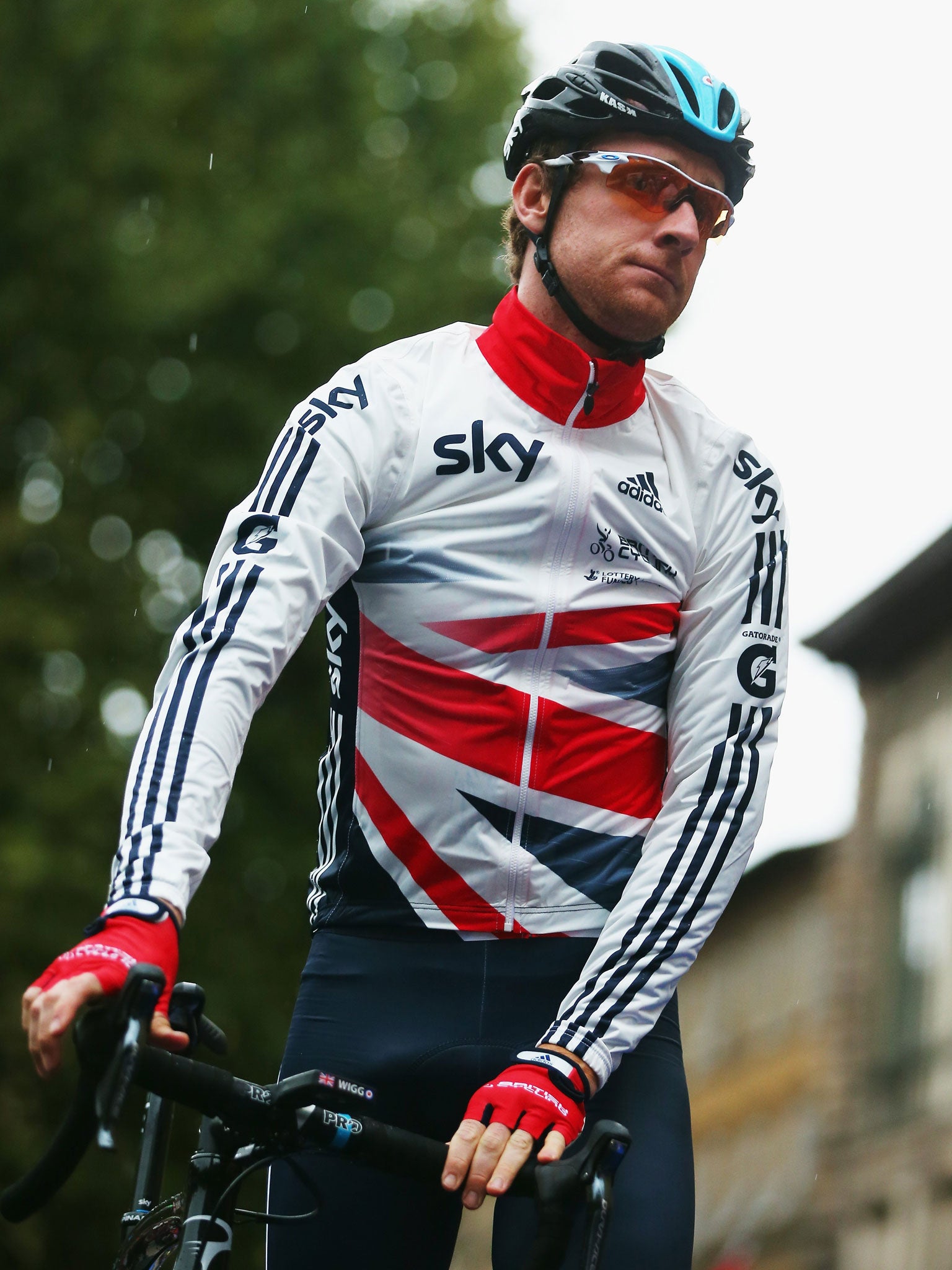Sir Bradley Wiggins is like the old family cat – loved, feared and afraid of the rain
The fiasco of Florence has left Sky and their sometime leader at a critical crossroads

Your support helps us to tell the story
From reproductive rights to climate change to Big Tech, The Independent is on the ground when the story is developing. Whether it's investigating the financials of Elon Musk's pro-Trump PAC or producing our latest documentary, 'The A Word', which shines a light on the American women fighting for reproductive rights, we know how important it is to parse out the facts from the messaging.
At such a critical moment in US history, we need reporters on the ground. Your donation allows us to keep sending journalists to speak to both sides of the story.
The Independent is trusted by Americans across the entire political spectrum. And unlike many other quality news outlets, we choose not to lock Americans out of our reporting and analysis with paywalls. We believe quality journalism should be available to everyone, paid for by those who can afford it.
Your support makes all the difference.As the British coach, its black and blue colours appropriate given the day its occupants had endured, waited for the race to finish at Sunday’s World Championships with its full complement of eight riders already on board, Mark Cavendish took the chance to have a nap. He had earned it.
This is Cavendish’s neck of the woods. He lives in Tuscany, not far from Florence, where the road race came to its soggy and, for the British, dispiriting conclusion. He knows the roads, but then so do many of his team-mates. The Tuscan town of Quarrata was the training base from which so much of the work to turn the talents of a true golden generation into something tangible was done.
These are heady days for British cycling, which is what made Sunday such a shock. They counted them out from Lucca and counted them back on to the bus long before the race reached its finale. Cavendish did his job, grimacing at the front of the peloton as he hurried it across the Tuscan countryside. Only he and Luke Rowe, a late replacement for Jonathan Tiernan-Locke, were absolved of any blame by Chris Froome.
Rod Ellingworth, the team’s coach, excused nobody. It is unusual for a coach to speak with such candour; he wondered even about their spirit. Josh Edmondson crashed and Steve Cummings had a puncture, which at least gives them a defence. Ian Stannard survived longer than most. Froome was left alone and Geraint Thomas was last man standing.
Which leaves Bradley Wiggins. Sunday was a dreadful day for Wiggins, and one that will leave Ellingworth and Dave Brailsford puzzling once again what to do with Wiggo.
There are two sides here. One would suggest that Wiggins has become like the ageing family cat, well loved, slightly feared for its unpredictability and a steadfast refusal to go out in the wet. On the other there is the evidence of the Tour of Britain and even more so his silver medal in the time trial here last Wednesday.
On his (dry) day he remains a formidable rider and at 33 he is eight years younger than Chris Horner, the American who won the Vuelta a España last month. This is not the end of the road but it does feel like Wiggins and Team Sky have reached a crossroads.
The alacrity of his departure on Sunday raised questions once again over his willingness to ride for others, and in particular Froome. Thomas said recently that Wiggins’ mood can at times spread across the team as a whole. Wiggins, as befits a Tour de France winner and a multiple Olympic champion, has a strong influence, sometimes for good, sometimes not.
He led Sky in the Tour of Britain and rode well, even though the weather was not kind during the early part of the race. He was supposed to ride for Froome on Sunday, supposed to be a team player, and he was not.
Ellingworth rejects the idea that Wiggins cannot be a team rider, pointing to his part in helping Cavendish win the world title in Denmark two years ago and then setting the Manxman up to win on the final day of the 2012 Tour.
“He did a fantastic job in Copenhagen, [and on] the Champs-Elysées,” said Ellingworth. “It is in there. People will read into it further, but it was just circumstances on Sunday. If it had been dry, I think he’d have been OK. He has the form. If you were in the car behind him in the time trial, you’d never have thought that could have happened on Sunday.”
Ellingworth and Brailsford, the masterminds behind Britain’s and Sky’s successes, have some big questions to chew over when they sit down to plan next season. The ability of Rui Costa, Sunday’s winner, to ride more or less on his own – Portugal had a team of three – and make instant decisions stood in contrast to what often appears a more rigid approach from the British teams.
In 2014, Froome will defend his Tour title – the overall success of this season cannot be forgotten – but what will Wiggins do? After Sunday it is becoming more difficult to see him riding as part of the Tour team – or with Froome full stop – and a return to the track, when his contract ends in a year, grows ever more likely.
Join our commenting forum
Join thought-provoking conversations, follow other Independent readers and see their replies
Comments